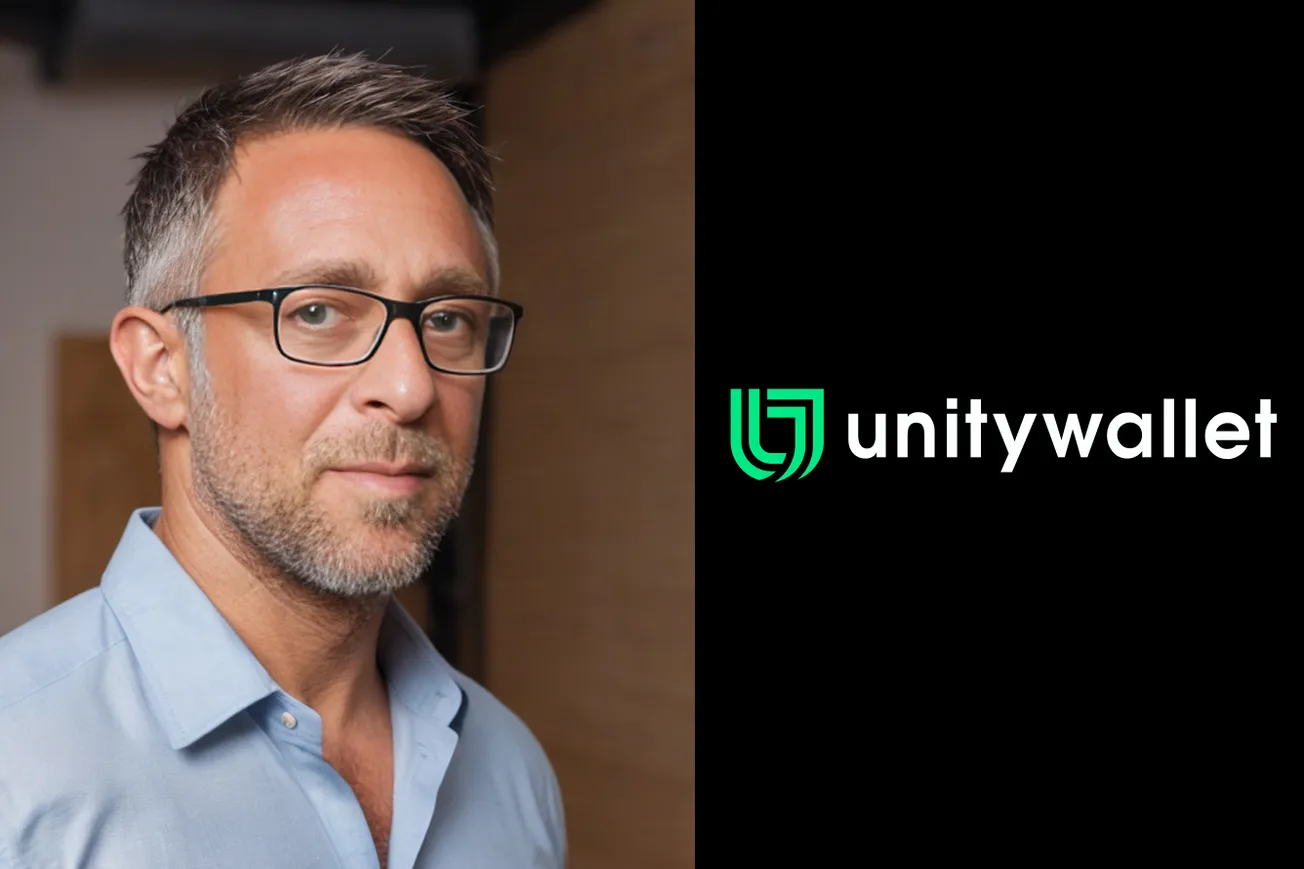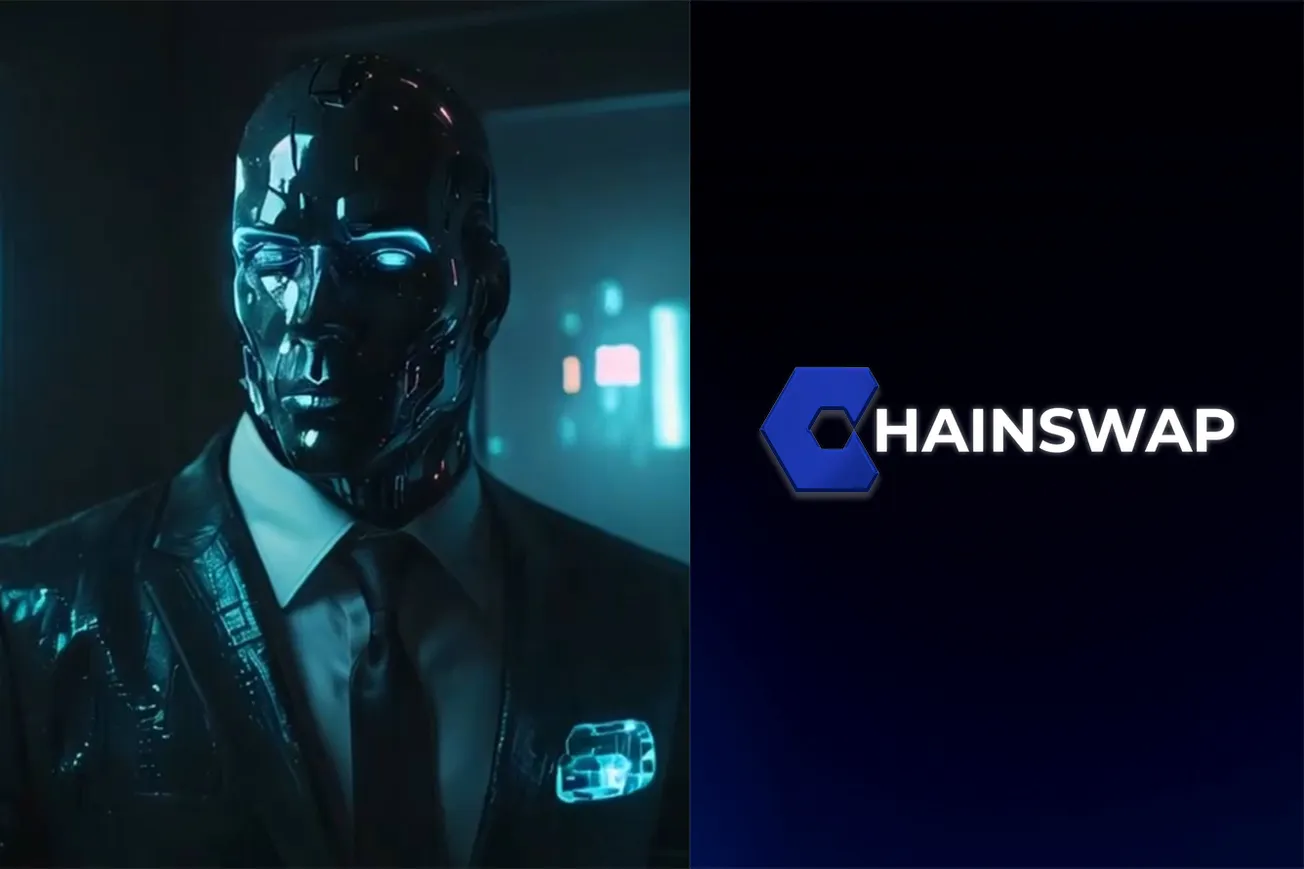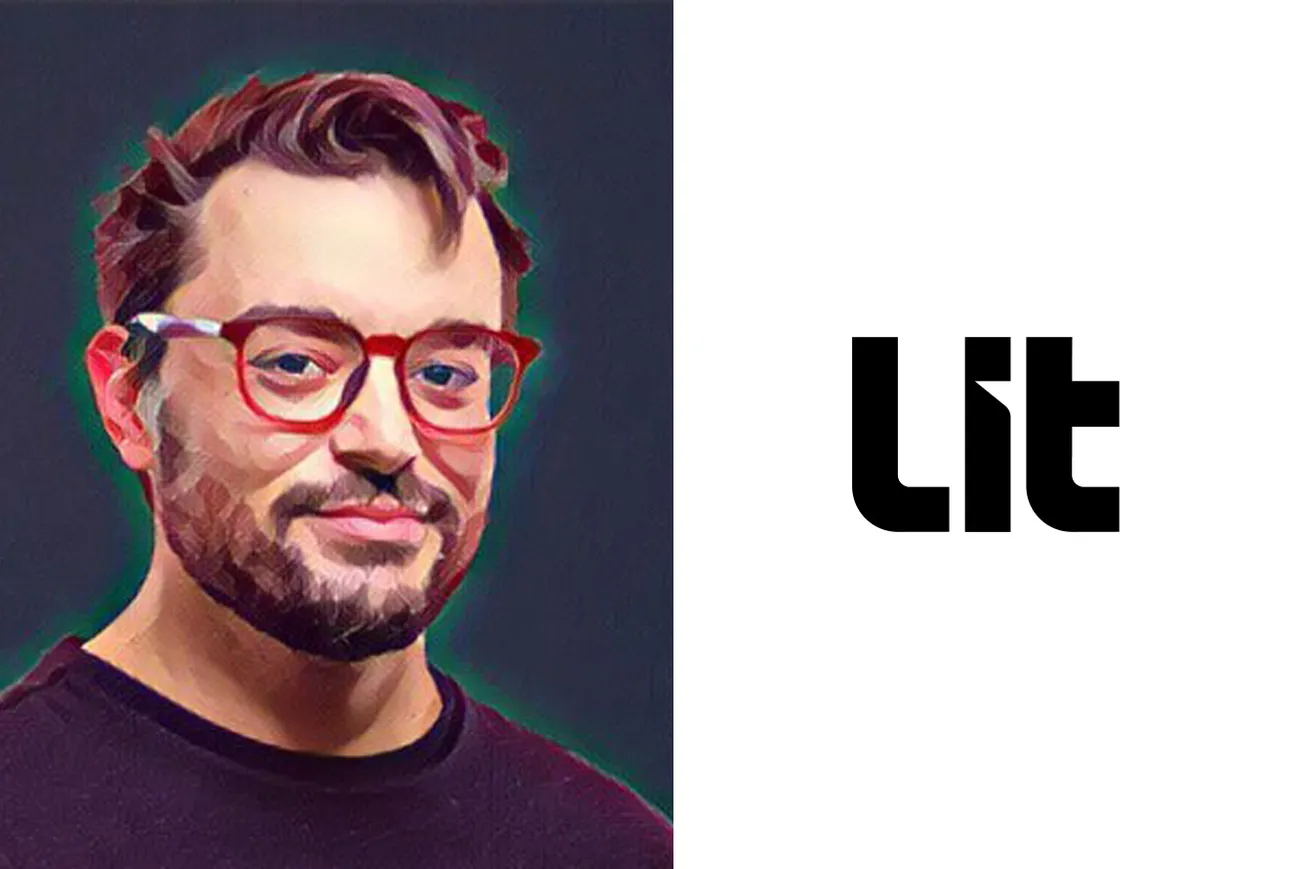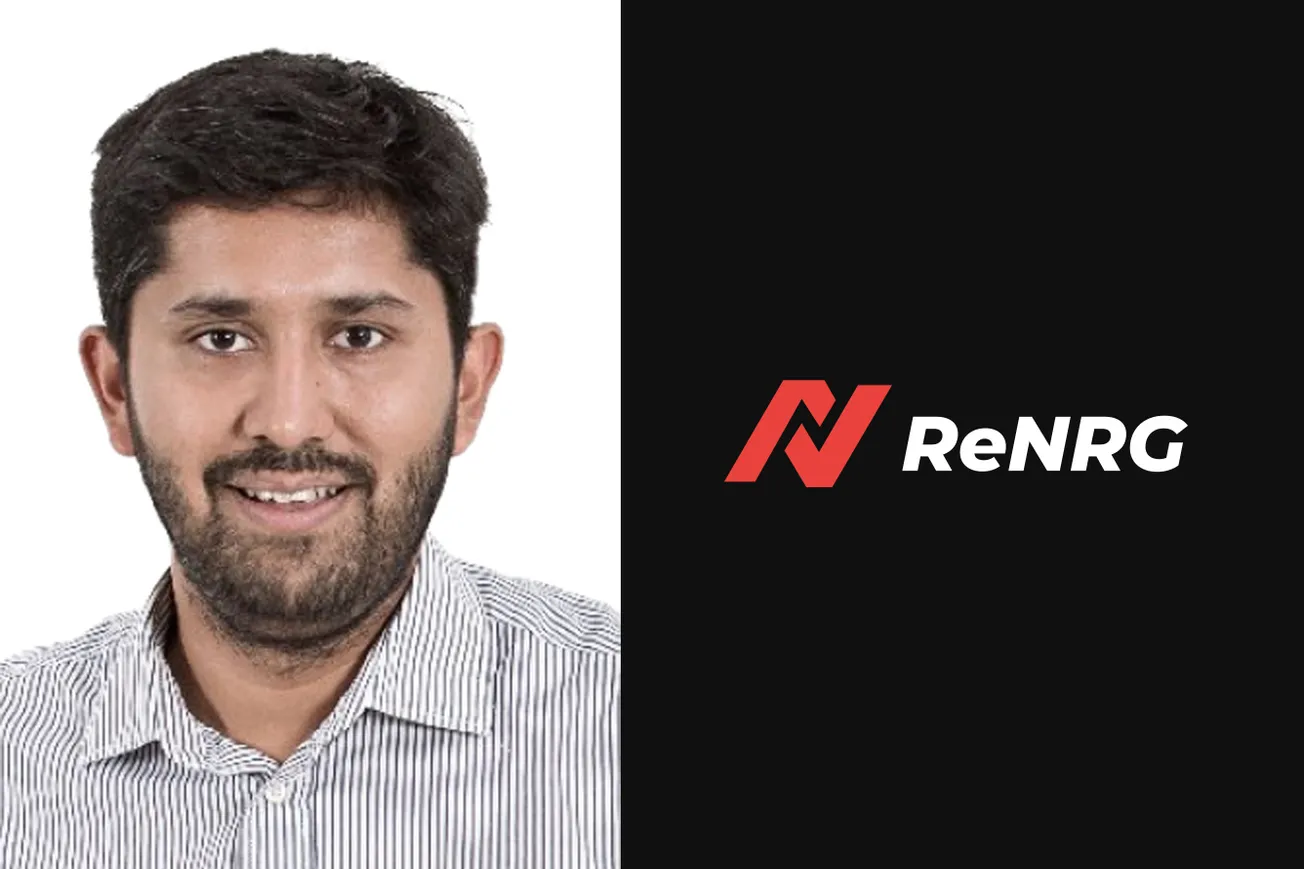Table of Contents
At The Founder, we are always on the lookout for industry leaders shaping the future of technology. In this exclusive interview, we sit down with James Toledano, the Chief Operating Officer at Unity Wallet. Unity Wallet is a self-custodial crypto and Web3 wallet designed to provide secure and intuitive access to decentralized finance (DeFi). With years of experience in the industry, James has been featured in major publications such as Forbes, The Independent, Barron’s, Cointelegraph, Blockworks, and Market Watch. Today, he shares insights into his journey, the evolution of Web3, and the impact Unity Wallet is making in the crypto space.
To start off, can you tell us a bit about yourself? How did you first get into the crypto and blockchain industry?
I started out in the music business in the U.S. launching the world’s first legal music download site (in conjunction with Apple) called brandnewmusic.com. It failed and you don’t get points for being too early. From there I went into music anti-piracy which is where I had my first exposure to decentralized technologies like BitTorrent. After this, I set-up and operated a digital transformation agency in New York which did pretty well.
To give some context, I was living on Wall Street in NYC during the Occupy protests back in 2008 and saw how customers couldn’t access their own money due to runs on banks from liquidity issues. This made a big impression on me and when Bitcoin launched in 2009, it seemed like a logical answer —no central control, almost total anonymity, 24/7 access and totally decentralized from the traditional banking system.
I waited about a year and became a fairly early investor in Bitcoin back in 2010 —I could have been a whale but sold quite a bit of my holdings too early.
I am what you would call a libertarian and a Bitcoin maximalist. But I’m not a crypto-bro, I avoid those types at all costs, they make a mockery of the space with their idiotic narratives. I have stayed true to Bitcoin and regularly invest to this day.
Anyway, I pounced on an opportunity to join a nascent crypto wallet business called Savl in the early 2020’s and stuck with it. We changed the name to Unity Wallet and have been growing ever since. So you could say that I’ve been in this space in some form or another for 15 years, which is the age of the vertical.
What excites you most about working at Unity Wallet? How does your role as COO contribute to the company’s vision?
No one day is the same. We are constantly forging new business relationships, facing new regulatory challenges, adding new coins, integrating new technologies and in my case, writing a lot of commentary for the press —which I absolutely love doing, and it enables me to speak to potential investors in crypto as well as long-standing early adopters, and everyone in between.
Also right now, we are in the golden age of crypto and it feels like we are driving meaningful change and adoption of Web3 technologies in a way that is meaningful, intuitive and secure. We are also always trying to improve which is the goal of any technology business over time.
Crypto and DeFi should be accessible to everyone, not just early adopters or technical experts. As COO, part of my focus is on aligning our product development, partnerships, and user experience with our overarching vision: making decentralized finance seamless for everyday users i.e. making a truly decentralized product feel centralized.
By ensuring our platform remains both innovative, intuitive and user-friendly, we help bridge the gap between traditional finance (TradFi) and the next generation of digital assets (DeFi), which I call NewFi.
Unity Wallet emphasizes security, ease of use, and accessibility. What key challenges do you see in mainstream crypto adoption, and how is Unity Wallet addressing them?
We face three major hurdles: complexity, security concerns (AI being top among them), and regulatory uncertainty —it’s a patchwork quilt and ideally we want a robust global framework.
Many users find Web3 technology intimidating which is why spot ETFs have been so popular, and the fear of hacks or losing funds discourages participation. But most of these fears are down to lack of education in my view. Educating users is part of our mission also, which is why I’m so open to talking about my story and commenting on trends in the market.
Unity Wallet addresses these challenges by offering the most intuitive and user-friendly interface, robust security features through our new security centre such as multi-layer encryption and private key control through a 24-word (not 12 like many others do) recovery phrase, biometric options, ability to hide balances from prying eyes, security alerts and the unique option to run risk assessment checks against any crypto wallet address to make sure you aren’t accepting tainted assets into your wallet, we call this KYT: Know Your Transaction.
We also offer seamless on/off ramping for many cryptos direct to a users bank card. Additionally, we remain proactive in regulatory discussions, ensuring compliance while advocating for policies that support and don’t stifle innovation. Our goal is to make DeFi as simple and secure as traditional banking, empowering more users to explore its benefits with confidence and ease.
With the increasing concerns over security in Web3, what measures does Unity Wallet take to ensure the safety of users’ assets?
Security is our top priority and is at the core of Unity Wallet’s design. We employ industry-leading encryption, non-custodial key management, and multi-factor authentication to protect user assets. Additionally, our wallet integrates real-time threat detection to identify and mitigate potential risks. Unlike centralized platforms, Unity Wallet gives users full control over their private keys, reducing exposure to third-party vulnerabilities but placing full responsibility on the user for their security. Web3 is all about ownership and personal responsibility.
We also educate our community on best security practices, such as avoiding phishing attacks and securely storing seed phrases offline. By combining advanced security features with user education, we create a safer Web3 experience.
No doubt, AI poses a greater risk across all aspects of finance and this is something we must and do stay on top of.
Your platform offers seamless swaps, on/off ramps, and a loyalty program. What sets Unity Wallet apart from other self-custodial wallets in the market?
What truly sets us apart is our commitment to usability and ecosystem connectivity. While many self-custodial wallets offer basic asset storage, we go further by providing seamless swaps across multiple chains, we offer over 250 cryptocurrencies, fiat on/off ramps for easy entry and exit, and a loyalty program that rewards user engagement for just opening the app.
We are the most feature-laden wallet in existence. We also offer users the ability to store their NFTs across multiple chains, we have a very advanced WalletConnect integration opening up users to the world of dApps (decentralized apps) —and there are 1000’s of them for lending, borrowing, gaming, NFTs etc.
We also offer sub-accounts for optimal asset organization, we have staking and users can also spend their crypto on everyday goods and services across 4,000+ products in almost 200 countries. I also mentioned KYT above, this allows users to run risk assessment checks against any/most wallet addresses before transacting so that they don’t unwittingly accept tainted crypto into their wallets —which could lead to them being blacklisted on central exchanges.
Our goal is to simplify DeFi by removing unnecessary friction, making it as straightforward as traditional finance. We also prioritize customer support and user education, ensuring that both beginners and experienced users feel confident using our platform. And they absolutely do.
How do you see the evolution of Web3 wallets in the next five years? Will self-custody become the norm for mainstream users?
Web3 wallets are evolving rapidly, with a focus on improving security, usability, and interoperability. In the next five years, we anticipate major advancements in smart contract wallets, biometric authentication, and account abstraction, making self-custody more accessible to mainstream users.
While not everyone will immediately transition away from centralized exchanges we are certain that more and more users understand the risks of keeping/storing their assets on centralized exchanges and this is why we are seeing explosive growth for self-custodial wallets and devices.
We aim to grow awareness of self-custody’s benefits—such as enhanced security and financial sovereignty—with the aim of driving adoption. At Unity Wallet, we’re committed to simplifying this transition by offering user-friendly tools that empower individuals to take control of their digital assets with confidence.
Regulation in the crypto space is always evolving. How does Unity Wallet navigate the regulatory landscape while ensuring compliance and user empowerment?
Unity Wallet is committed to proactive compliance. We closely monitor global regulatory developments and collaborate with legal experts to ensure our platform aligns with evolving frameworks in many jurisdictions which is not easy and is extremely costly.
At the same time, we advocate for balanced regulations that protect users without stifling innovation —this is why we are excited by the Trump administration's libertarian approach versus the E.U. approach —which seems to be anti-innovation and at times self-sabotaging.
By integrating compliance solutions such as KYC (Know Your Customer) for on/off-ramp fiat transactions while maintaining non-custodial principles, we feel that our platform is both legally sound and true to Web3’s decentralized ethos. Our goal is to foster an environment where users can confidently participate in DeFi while enjoying regulatory clarity through our partners at the point where they need to i.e. where DeFi and TradFi crossover.
What advice would you give to individuals or businesses looking to dive into the world of decentralized finance (DeFi)?
ABD: Always Be Diligent. You must educate yourself and security should be your top priority when entering DeFi. Individuals should start with fundamental research—understanding smart contracts, self-custody, and security best practices—before investing or transacting.
Businesses should identify real-world use cases where DeFi can add value, rather than simply following trends. Ultimately, DeFi offers incredible potential, but success comes from informed participation and a long-term perspective.
What’s next for Unity Wallet? Are there any exciting updates or partnerships in the pipeline?
We are always evolving and enhancing user experience and expanding functionality. Our upcoming roadmap includes enhanced security features, a more intuitive onboarding process, and expanded cross-chain capabilities. We do have exciting partnerships in the pipeline and will be adding a very exciting feature soon.
Finally, what personal mantra or philosophy keeps you motivated in this fast-paced industry?
“Innovation thrives at the intersection of security and accessibility.” This philosophy drives my approach to building within DeFi/Web3. The crypto industry moves at a relentless pace, and success depends on balancing cutting-edge technology with real-world usability. I stay motivated by focusing on the bigger picture—creating solutions that empower individuals and businesses to take control of their financial futures.
Every challenge presents an opportunity, and at Unity Wallet, we embrace these opportunities to shape a more inclusive, decentralized world. The future is decentralized.










